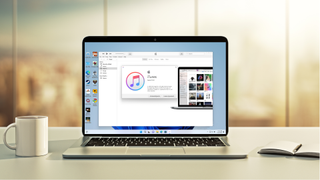Windows 11 continues to struggle to attract new users
Is Windows 11 becoming more popular yet? No, is the short answer

Windows 11 is still hampered by a lackluster pace of adoption, looking at the latest figures gauging the market share of Microsoft’s desktop operating system.
The report on Windows versions and their respective market share compiled by AdDuplex for June 2022 shows that Windows 11 is now on 23.1% of the PCs included in the firm’s figures. (Those are Windows machines running Microsoft Store apps that display AdDuplex’s advertisements).
As AdDuplex points out, in the last two months, only an extra 3.4% of Windows PCs have upgraded to Windows 11, which represents a somewhat sluggish overall rate for migration to the newest OS.
Windows 10 versions represent the lion’s share of the market, of course, with the most popular version being Windows 10 21H2 on 38.2%, and the 21H1 feature update in second-place behind that on 23.9%.
Analysis: Painfully slow progress over most of 2022
While a 3.4% gain over two months is not anything to shout about, it is at least better than the two-month period previous to that, where Windows 11 only put on a feeble 0.6% in terms of market share.
Windows 11 did witness a 3.2% surge back in February, mind, which capped off a fairly chunky adoption spike where the OS doubled its share at the close of 2021. But since then, everything has fallen very flat going by AdDuplex’s stats.
We should never read too much into just one set of figures – they provide a snapshot of just a single facet of the popularity of Windows 11 – but the stats do appear to broadly indicate that there was an early adoption spike of keenly interested and more curious computing types, but since then, things have really slowed down.
Get daily insight, inspiration and deals in your inbox
Get the hottest deals available in your inbox plus news, reviews, opinion, analysis and more from the TechRadar team.
With still a good deal of road to go before Microsoft brings down the curtain on Windows 10 support (later in 2025), we can’t imagine the pace of Windows 11 adoption is likely to speed up any time soon, although new desktops and laptops shipping with the newer OS pre-installed will gradually help adoption.
That said, there are some key technologies that could eventually spark wider adoption, and one that quickly springs to mind is DirectStorage on the gaming front, which is set to be a major boost for Windows 11. And not just for SSD loading times, but for smoother open world games (loading assets more quickly on-the-fly), the caveat being that games need to support it, and none do yet. (Although the first title with DirectStorage, Forspoken, is due to arrive on the PC later this year).
Via Betanews
Darren is a freelancer writing news and features for TechRadar (and occasionally T3) across a broad range of computing topics including CPUs, GPUs, various other hardware, VPNs, antivirus and more. He has written about tech for the best part of three decades, and writes books in his spare time (his debut novel - 'I Know What You Did Last Supper' - was published by Hachette UK in 2013).
